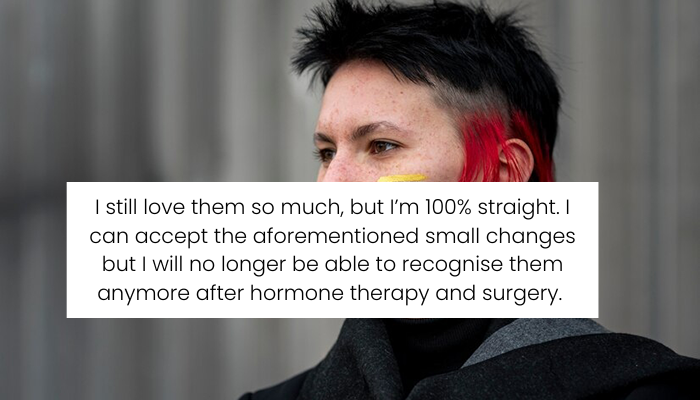Navigating Love and Identity: When a Spouse Transitions
In a heartfelt account, a 32-year-old man shares the emotional journey of his marriage as his wife of five years comes out as gender fluid and later identifies as transgender. Initially adapting to changes like a shift to gender-neutral clothing and a deeper voice, he now faces the profound reality of his partner’s decision to undergo hormone therapy and gender-affirming surgery. This development challenges the foundation of their relationship, especially as he identifies as heterosexual and grapples with the impending transformation of his partner’s physical appearance.
Their shared life, encompassing a home, mortgage, and pets, stands at a crossroads. Both partners are engulfed in emotional turmoil—he mourns the loss of the woman he married, while his partner battles intense gender dysphoria. The narrative delves into the complexities of love, identity, and the difficult decisions that arise when personal truths come to light.
The trans movement has come a long way recently, but this guy was left speechless when his wife came out as trans after 5 years of marriage
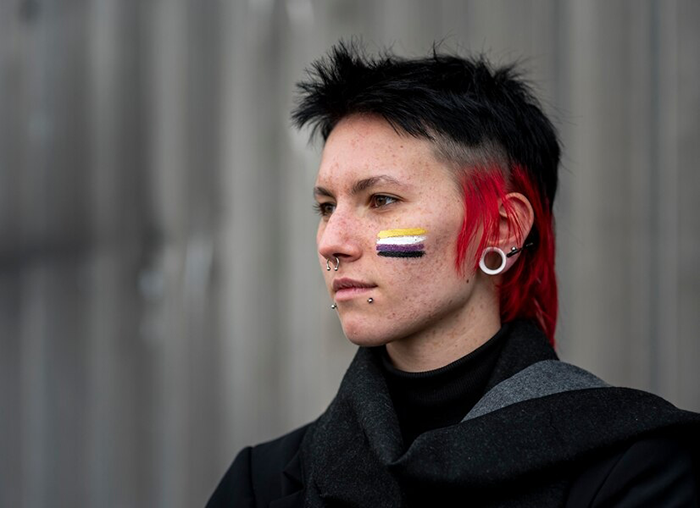
When she came out as gender fluid earlier this year, he accepted all the small changes, like what she wore, her short hair, and her lack of makeup


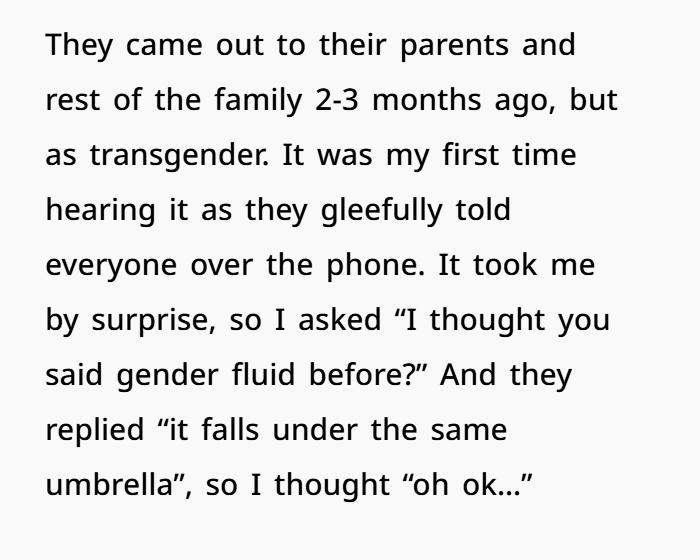
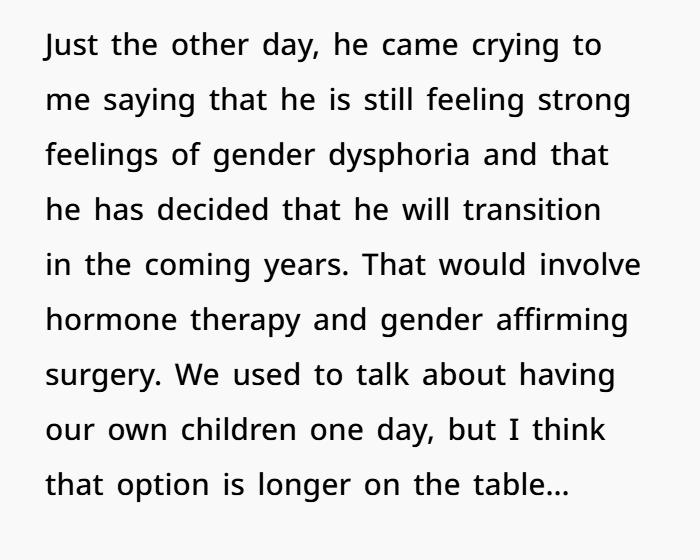


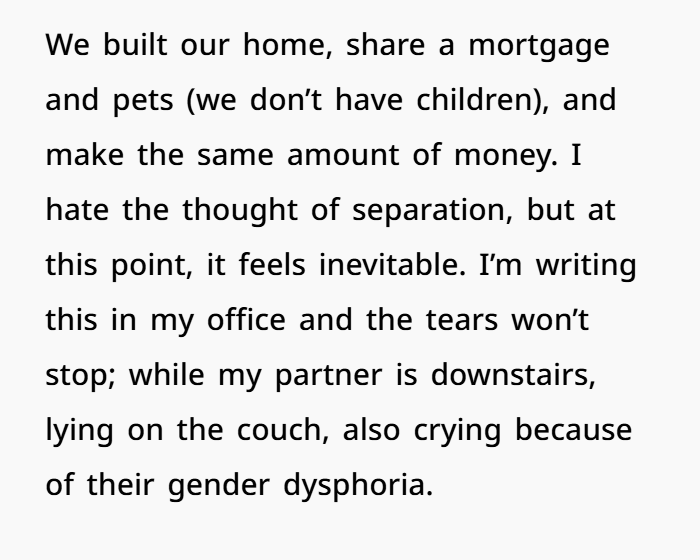
The Intersection of Gender Transition and Marital Dynamics
Understanding Gender Dysphoria and Its Impact on Relationships
Gender dysphoria, characterized by a profound discomfort with one’s assigned gender at birth, can lead to significant psychological distress. According to the Mayo Clinic, individuals experiencing gender dysphoria may face challenges such as anxiety, depression, and strained interpersonal relationships. In romantic partnerships, this distress can manifest as decreased intimacy and emotional disconnect, particularly when one partner undergoes a gender transition.
Legal Considerations in Marriages Involving Gender Transition
The legal landscape surrounding marriages where one partner transitions is complex. In the United Kingdom, the Gender Recognition Act 2004 allows transgender individuals to obtain legal recognition of their acquired gender. However, this process historically required the dissolution of existing marriages, a stipulation that has evolved over time. Legal professionals emphasize that while gender identity should not inherently affect divorce proceedings, practical considerations—such as societal biases and the potential impact on employment—can influence outcomes.

Emotional and Psychological Challenges for Partners
Partners of individuals undergoing gender transition often experience a spectrum of emotions, including grief, confusion, and a sense of loss. A study published in Psychology Today highlights that even in supportive relationships, partners may feel as though their shared history is altered, leading to feelings of betrayal or abandonment. These emotional challenges underscore the importance of open communication and counseling to navigate the evolving dynamics of the relationship.
Support Systems and Coping Mechanisms
Accessing support networks is crucial for both individuals undergoing transition and their partners. Online communities, such as Reddit’s r/mypartneristrans, provide platforms for sharing experiences and seeking advice. Engaging with therapists who specialize in gender identity issues can also offer guidance and coping strategies. Furthermore, educational resources can aid in understanding the nuances of gender identity and the transition process, fostering empathy and informed support within the relationship.
In the comments, most readers agreed there was no hope for the marriage and urged the guy to move on as soon as possible




The journey of a spouse transitioning genders presents multifaceted challenges that intertwine emotional, legal, and societal threads. For couples facing this reality, acknowledging and addressing the complexities with compassion and open dialogue is essential. While the path forward may be fraught with difficult decisions, the pursuit of authenticity and mutual understanding can pave the way for personal growth and, in some cases, a redefined partnership.

